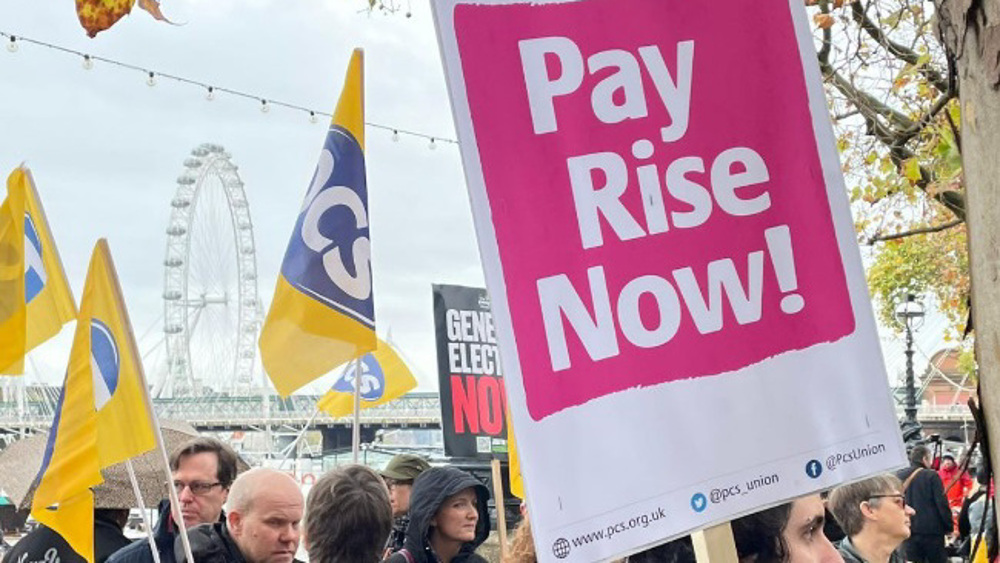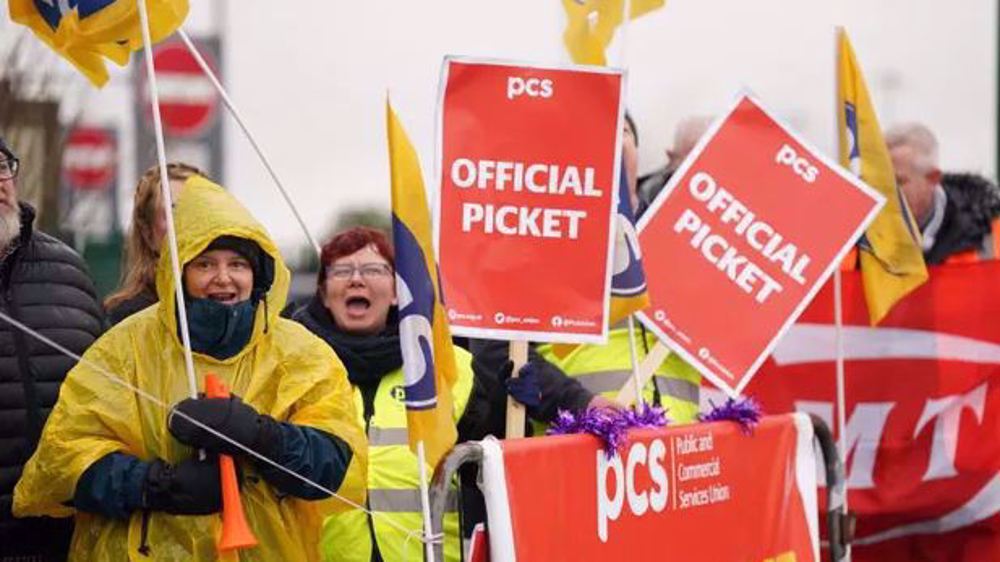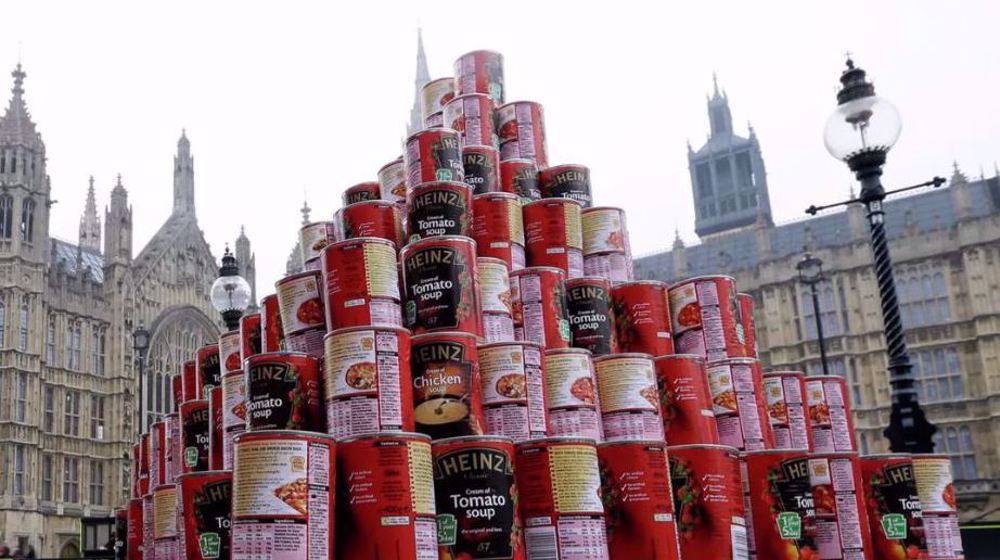More than 100,000 British civil, public servants to go on all-out strike on April 28 over pay
A major British trade union says more than 100,000 of its members are to go on another all-out strike on April 28 in a longstanding dispute over pay and work conditions with the government.
The Public and Commercial Services Union (PCS) made the announcement on Monday, saying the industrial action is meant to mount pressure on the British government to rectify the workers' pay, pensions, redundancy conditions, and job security terms.
The union added that 133,000 civil and public servants will take part in the April 28 strike, as workers in the Passport Office continue their ongoing strike into early May.
The union's General Secretary Mark Serwotka said, "Our members are not backing down in this dispute... Ministers need to take notice that we’re escalating our action, and they need to resolve the dispute by putting money on the table."
The new industrial action comes after earlier this month thousands of civil servants across several government departments staged a series of walkouts in demand of better pay rises to cope with a cost-of-living crisis that has been hitting the country hard. They were joined by waves of other employees, including railway workers, doctors, and teachers.
"We know our strikes have already caused serious disruption. The new strikes and another national day of action will pile the pressure on a government that refuses to listen," Serwokta said.
In January, the PCS had organized another similar strike, which began on February 1. Around 100,000 British civil servants joined that walkout.
During the past months, the UK has been grappling with its biggest strike wave for decades, with airport baggage handlers, border staff, driving instructors, bus drivers, and postal workers walking off their jobs to demand higher pay.
The wave of paralyzing strikes came after the workers’ demands for a pay increase were rejected by the government, as the government has offered civil servants a 2%-to-3% pay raise. The government says it cannot afford high increases that match the soaring inflation, and even if it could, such monetary increases would further fuel inflation.
In reaction to the wave of industrial actions, the government has introduced a strike legislation to contain walkouts in the country's key sectors, forcing the staff to maintain a basic level of service during strike time or face dismissal.
Iran denies attacks on Oman as it warns of US-Israeli ‘false-flag’ ops
Iran knows where Netanyahu convenes his meetings: Ex-IRGC chief
‘Law of jungle’: China says Israeli-US aggression against Iran must stop
Iran says committed to regional security; retaliatory attacks only target Israel, US assets
'Blatant war crime': Iran denounces US-Israel strikes on Gandhi hospital in Tehran
IRGC spox: 650 casualties for US military in two days as Iran missiles force aircraft carrier to fle
Tehran warns of false-flag operations, says Israel ‘undoubtedly’ seeking to widen war
New wave of attacks devastates key US base in Bahrain as Iran strikes back















 This makes it easy to access the Press TV website
This makes it easy to access the Press TV website